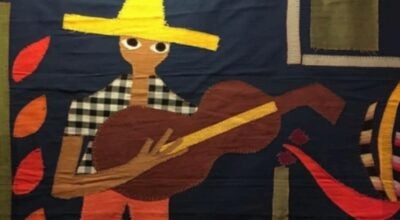Conservation Corner: At What Cost….?
Published 10:09 pm Wednesday, February 27, 2019
Let me begin this Conservation Corner with a quote from a book written by an artist named Verne Dawson, who just happens to live in Saluda when he’s not painting and doing shows in NYC. It has to do with the fact that much of what we know of cultures thousands of years ago is the result of paintings on walls of caves and ancient structures.
“….[art], its essentials are basic, at least 40,000 years old and an important presence in the continuum of human consciousness. We know that the world is at a tipping point, that we live during an era of mass extinction, that after tens of thousands of years, aboriginal peoples and their cultures have dwindled and vanished, while we watch. We witness vast ecosystems, millions of years of development lost to modern man’s needs and carelessness. The integration of the agrarian and wild with the mega-scale of 21st century’s means, facilities, density of occupation and impressive achievements in technology and science seem less a possibility than ever. It pains me terribly to consider that quite possibly the battle has been lost.”
What was written after this quote I found very interesting, and it has to do with the fact that ancient cultures knew a whole lot more about how our universe works than we do. Much of that knowledge has been passed down through the generations in the form of children’s stories and tales, much of it gleaned from the stars and the natural world. Modern cultures seem to hone in on the details while missing the big picture, how all parts of the universe work together as one entity.
Here are some thoughts to tickle your mind: Why does Snow White have seven dwarfs? Is Santa Claus a metaphor for the sun, the winter equinox to be specific? When we look up on a clear night sky now we can see seven heavenly bodies other than the stars or comets or asteroids: the Sun, Moon, Mercury, Venus, Mars, Jupiter, and Saturn. These are the days of the week. In the nineteen seventies an archeo-astronomer named Alexander Marshak began to count the marks previously considered decorations and/or notches to help the grip on Paleolithic objects made of bones. What he found was that the engravings were not random at all, but were counting devices to keep track of the phases of the moon. Ancient cultures designed a calendar based upon the skies that was more accurate than what we have now, with 4 seasons of 13 weeks synchronized with the 28-day lunar calendar.
In short, we’re not as smart as we think, probably not as smart as the people before us who most likely could not read or write. We’ve lost sight of the big picture, the picture of the earth without which we will all perish. We’re all reading about the “Green New Deal” and how much it will cost. Yes, it will cost a lot in terms of all the modern conveniences that we have come to believe are essential to ‘the good life’. Maybe some of us old folks will need to do without that heart transplant so that our grandchildren will be able to breathe. Is it possible to imagine the value of a planet that has given life to so many living creatures, many of them now extinct, for thousands of years? Yes, changing our way of life and ‘doing without’ will be very hard, but it’s not impossible.
Do you remember the Iroquois Seventh Generation Principle? It was written about 1000 years ago, and it would behoove us ‘modern thinkers’ to take stock of what indigenous peoples knew long before us: With each action that we take, we must first consider how that action or decision will affect all creatures, including humans, living on earth 7 generations in the future. This ethic can also be applied to relationships – every decision should result in sustainable relationships seven generations in the future. Since war is the single largest contributor to global pollution and environmental degradation, that’s pretty obvious even though pollution has never been mentioned as a cost when we hear about armed conflicts.
I believe in the kiss principle: keep it simple. With each decision we make, as individuals and as citizens of a democracy, we should always think in terms of what our actions will mean for those coming behind us. We live on a finite earth; our actions will either consume this earth and its inhabitants to extinction, or it will live beyond our short time here. The keys to it’s future are in our hands.





